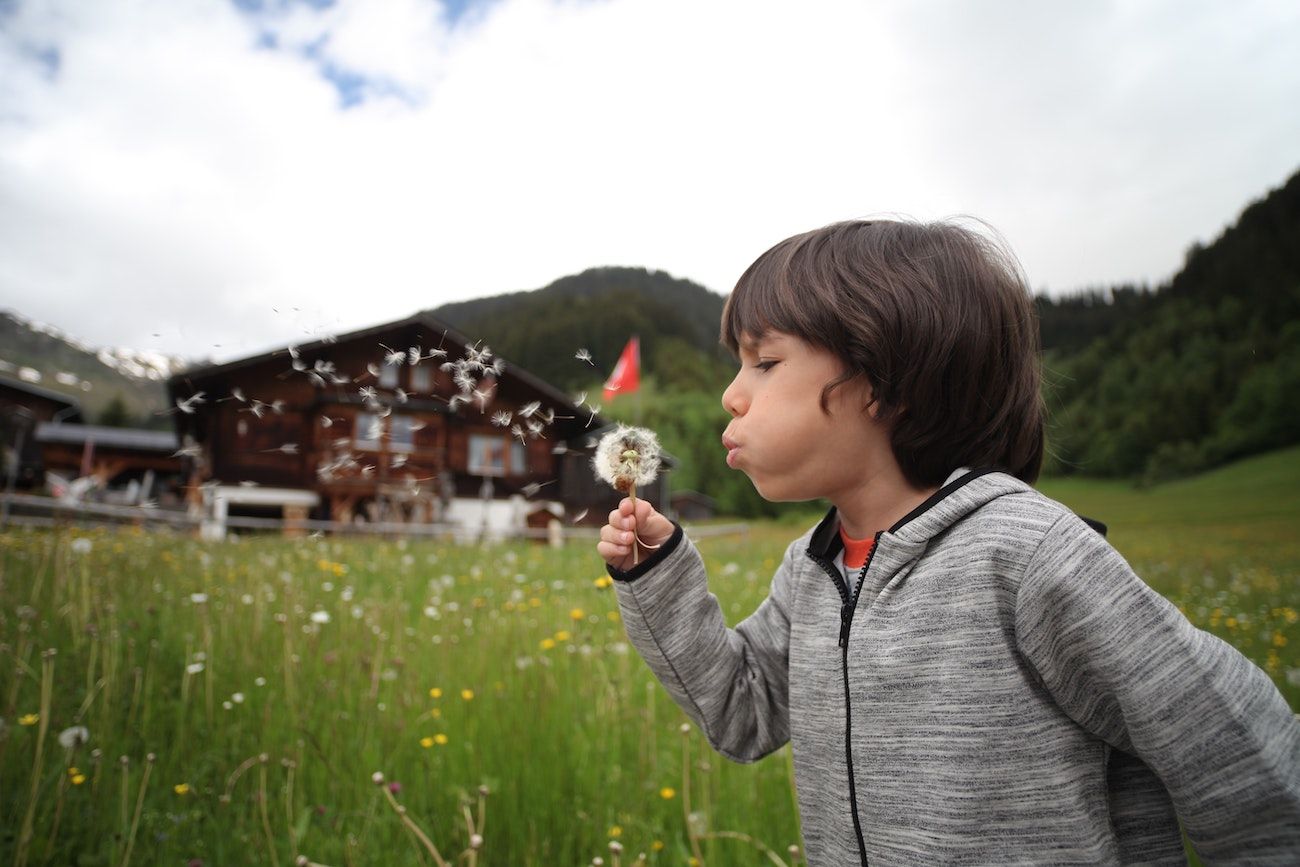Could the metaphor pitched by a paediatrician be the key to understanding children, and ourselves?
When children are growing, one of the most important things the people in their lives can do is to nurture them – more specifically, nurture them in the way that they need to be nurtured. There are countless self-help books on this, with varying schools of thought vying to help parents and carers make the right choice when it comes to raising children. Ultimately, what’s right for one person may not be right for another – but opening your mind to what’s out there could result in finding something that resonates. And this could be another concept to consider.
In 2019, American paediatrician W Thomas Boyce published his book, The Orchid and the Dandelion: Why Some Children Struggle and How All Can Thrive. In it, he makes the case that some children thrive in any environment, while others only flourish under certain conditions. He calls these two groups ‘dandelion’ and ‘orchid’ kids, and believes that recognising whether a child falls into one of these groups can help us understand what they need from parents and caregivers.

He writes about how, as a paediatrician for more than four decades, he became aware of the ways in which some children are “inordinately affected by the forces that protect health and those that imperil it”. He points to early childhood experiences as one possible explanation for these differences, and also to a child’s “relative biological susceptibility to the social contexts in which they live and grow”, both negative and positive – leading to the classic nature vs nurture debate. But, the dandelion and orchid children metaphor can still lead to a lot of helpful discussion, as counsellor Nicola Saunders explains.
“I think this is crucial research in helping us understand that human development is so much more than just physical.
“It is becoming more apparent that epigenetics plays a more significant role than we ever imagined. However, we don’t need to be scientists to see what is in front of our very eyes or, indeed, an awareness of our childhood experiences. It is precisely this that is being passed through the generations. Therefore, as a society, we need to move away from what we deem as our ‘normal’ and move towards understanding what a child needs to thrive, and implement this from conception.”
Nicola believes that having an understanding of our own trauma, and taking steps to heal from it, is an essential part of supporting both dandelion and orchid children. From there, it’s possible to get more specific about responding to children’s needs.
Supporting an orchid child
As the classification suggests, orchid children may need more support when it comes to creating the right environment for them to thrive in. What this will look like varies from child to child, but it may include maintaining a quiet environment, giving calm instructions, incorporating play into tasks, or giving encouragement. However, Nicola makes the point that it’s important to handle this in such a way that your reaction does not restrict them.

“Parenting children is a delicate balance,” Nicola says. “For example, if you have a ‘shy’ child, ask yourself why they are shy. ‘Am I shy? Do I create an environment that means they do not need to utilise their need for assertiveness? Am I raising them in the way that I was raised? Were my parents shy? Therefore, I can see the benefits of this as others will speak for me, thus making life easier (this is debatable). Therefore, I want the same for my child.’”
It may be tempting, once you understand the ways that these kinds of traits may either be genetic or related to early infancy or childhood experiences, to try to support them in a way that makes sense to you as the parent. But Nicola has a warning about making these kinds of assumptions: “As parents, we must start seeing children as individuals, instead of extensions of ourselves, to support their emotional and developmental growth.
“Some parents need to be needed. Therefore, they tend to meet their child’s every need, and the child becomes entirely dependent on them. This is essential in early development, but the parent needs to know when to start to let the reins go so that the child can naturally develop, evolve, and thrive.”
Supporting a dandelion child
On the other end of the spectrum, some children are given too much responsibility, and can become dandelion children. From the description of a dandelion child, it may at first seem as though, to some degree, a hands-off approach would work just fine for them. But this wouldn’t entirely be the case.
“Dandelion children may experience challenges developing an authentic connection with others due to developing an ability to be self-sufficient at an early age. This can be problematic in every area of life,” Nicola explains. “I have seen many people over the years who, in my mind’s eye, are like islands. This is simply due to a lack of trust that they can and will be supported by others; therefore, they go through life utilising and getting what they need from others but rarely truly connect (they do, however, still have relationships, but anybody who has been with an island before will recognise there has always been something missing – this is the connection).”
In order to break this kind of path, Nicola suggests that dandelion children can and will rely on others if they have evidence that the person can be trusted. To achieve this, she explains that consistency and continuity are essential for dandelion children, and for adults, too.

“The key for a dandelion child is nurture,” she explains. “Only when creating a safe and reliant environment will a dandelion child learn that they do not solely have to rely on themselves.”
Of course, there are some benefits of these traits – being self-sufficient is a good skill to possess. But relying on others is a necessary part of life, and learning how to do so in a healthy way is imperative.
Growing together
As Nicola pointed out, it may be possible for parents to recognise some of these traits in themselves, as well as their kids. And while there are things you can do to ensure the next generation grows up feeling secure and healthy, it’s also never too late to work on yourself. A wellbeing professional, like a counsellor, can help you explore how this may affect your life, and develop strategies to cope with it.
And while this metaphor suggests two categories, a healthy middle ground is possible. Instead of the detrimentally self-sufficient dandelion or the delicate orchid, with work and awareness, we could aspire to be more like the lavender bush: strong roots that make us resistant to hard times, while we come into spectacular bloom year after year.


Comments